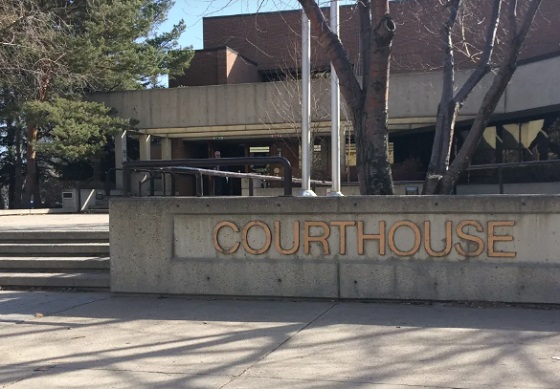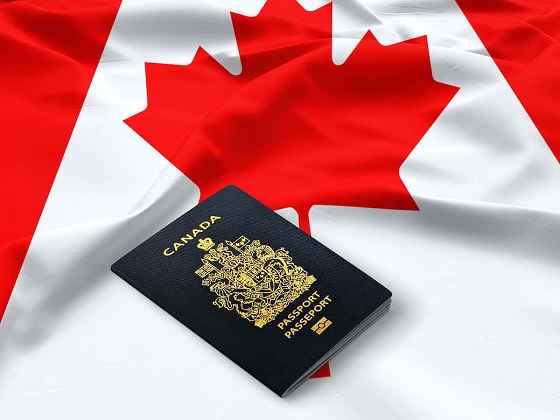Alberta
Watch: Province advising all large gatherings (over 250 people) in Alberta to cancel until further notice

Update on COVID-19 in Alberta
Alberta is adopting aggressive new public health measures to help limit the spread of the novel coronavirus, officially known as COVID-19.
Effective immediately, the Alberta government is asking all large gatherings or international events in the province to be cancelled and advising Albertans against travel outside of the country.
Four new cases of COVID-19 have now been confirmed in Alberta, bringing the total number in the province to 23, all travel-related. One patient continues to recover in hospital, while all others are in isolation at home.
“We are doing everything possible to limit the spread of COVID-19 in our province. The virus is spreading rapidly and is now a global threat. We are implementing these new measures to slow its spread and limit the risks in the weeks ahead. Protecting the health of Albertans is, and always will be, our top priority.”
“The coming weeks are vital in our fight to protect Alberta from COVID-19. These are serious steps, and ones we do not take lightly. I am calling on every Albertan and organization to assist our public health efforts and do their very best to comply with the public health guidance. It is critical that Albertans come together to do our part in keeping Albertans healthy and safe.”
New public health restrictions
Alberta is asking organizers to cancel any events that have more than 250 attendees. This includes large sporting events, conferences and community events. It does not extend to places of worship, grocery stores, airports or shopping centres.
Any event that has more than 50 attendees and expects to have international participants, or involves critical infrastructure staff, seniors, or other high-risk populations should also be cancelled.
Events that do not meet these criteria can proceed, but risk mitigation must be in place, such as sanitizer stations and distancing between attendees.
At this time, schools and daycares can remain open but steps should be taken to ensure that no more than 250 individuals are in the same room at any given time.
Travel outside of the country is not being recommended at this time. Given the rapid global spread of the virus, it is no longer possible to assess health risks for the duration of the trip.
New cases of COVID-19
Four additional cases of COVID-19 have been confirmed in the province. One of the confirmed cases is a two-year-old child from the Calgary zone who is now recovering at home.
The child who has tested positive for COVID-19 returned with their family from a vacation in Florida and developed mild symptoms once in Alberta. The child attended a local daycare from March 2-6 and tested positive on March 11.
The child is expected to make a full recovery.
As soon as the case tested positive, health officials took immediate action to protect the health of Albertans. On the advice of Alberta Health Services, the daycare has temporarily closed to limit exposure to the virus. All close contacts are self-isolating for 14 days while being monitored by health officials.
Any Albertan who has not been contacted directly by Alberta Health Services is not at risk.
The other three newly confirmed cases involve a woman in her thirties, a male in his fifties, and a woman in her seventies. They are all from the Calgary zone.
The travellers returned from travelling in Jordan, Egypt, France, Germany, and the United States, specifically Florida.
All Albertans are encouraged to visit alberta.ca/COVID19 for the latest information, guidance and resources.
Alberta
Alberta threatens to fight Trudeau government restrictions on Canada’s plastics industry

From LifeSiteNews
“If the federal government refuses to abide by the constitution, we will take them to court again to defend our jurisdiction and the thousands of Albertans who work in the petrochemical sector”
Alberta has rejected the Liberal government’s “unconstitutional” federal plastics registry and production limit.
In an April 25 press release, Alberta’s Environment Minister Rebecca Schulz promised to take Liberal Minister of Environment and Climate Change Steven Guilbeault to court over his proposal to create a plastics registry, mandating companies to report their plastic production and implementation.
“If the federal government refuses to abide by the constitution, we will take them to court again to defend our jurisdiction and the thousands of Albertans who work in the petrochemical sector,” Schulz declared.
“This unilateral announcement is a slap in the face to Alberta and our province’s petrochemical industry, and the thousands of Albertans who work in it,” she continued.
Guilbeault’s plan, set to be implemented in September 2025, would mandate that businesses record how much plastic they place on the market in addition to the amount of plastic waste generated on their commercial, industrial, and institutional premises.
Companies would then report that amount to the federal government. The plan exempts small businesses which produce less than one tonne of plastic each year.
However, Schulz explained that the registry would negatively affect Alberta, as “plastics production is a growing part of Alberta’s economy, and we are positioned to lead the world for decades to come in the production of carbon neutral plastics.”
“Minister Guilbeault’s proposal would throw all of that into jeopardy and risk billions of dollars in investments. This includes projects like Dow Chemical’s net-zero petrochemical plant in Fort Saskatchewan, a $9-billion project that will create thousands of jobs,” she warned.
Schulz further pointed out that the mandate will not reduce plastic production since countries such as China will produce more plastic to make up for Canada.
“If the federal government limits plastic production in Canada, other countries like China will just produce more. The only outcome that this federal government will achieve will be fewer jobs in Canada,” she explained.
Schulz’s statement comes after the November decision by the Federal Court to rule in favor of Alberta and Saskatchewan, declaring that Prime Minister Justin Trudeau’s government overstepped its authority by classifying plastic as “toxic” and banning all single-use plastic items, like straws.
Essentially, the ruling overturned Trudeau’s 2022 law which outlawed manufacturing or importing plastic straws, cutlery, and checkout bags on the grounds of government claims that plastic was having a negative effect on the oceans. In reality, most plastic pollution in the oceans comes from a few countries, like India and China, which dump waste directly on beaches or in rivers.
The November ruling was only one of two recent court rulings that have dealt a blow to Trudeau’s environmental laws.
The second ruling came after Canada’s Supreme Court recently sided in favor of provincial autonomy when it comes to natural resources. The Supreme Court recently ruled that Trudeau’s law C-69, dubbed the “no-more pipelines” bill, is “mostly unconstitutional.” This was a huge win for Alberta and Saskatchewan, which challenged the law in court. The decision returned authority over the pipelines to provincial governments, meaning oil and gas projects headed up by the provinces should be allowed to proceed without federal intrusion.
The Trudeau government, however, seems insistent on defying the recent rulings by pushing forward with its various regulations.
Alberta
Red Deer Company fined $360,000.00 after 2022 workplace fatality

Company sentenced for workplace fatality
An oilfield equipment supplier will pay $360,000 related to a workplace fatality.
On Feb. 21, 2024 in the Red Deer Court of Justice, Isolation Equipment Services Inc. pleaded guilty to one charge under the Occupational Health and Safety (OHS) Code for failing to take measures to eliminate the potential danger of equipment or material that was dislodged or moved. The Crown withdrew 28 other charges under OHS legislation. The company was sentenced on April 24.
The charges stem from an incident on a Red Deer construction site on Jan. 13, 2022. A worker operating an overhead crane was positioning a valve bonnet when the equipment released from the rigging, striking and pinning the worker. The worker sustained fatal injuries.
The company will pay $360,000 in total penalties, including a $1,000 fine. Under a creative sentence, $359,000 will be paid to Energy Safety Canada to develop supervisor and competency programs targeting those who work with new, young and inexperienced workers.
The Occupational Health and Safety Act provides a creative sentence option in which funds that would otherwise be paid as fines are directed to an organization or project to improve or promote workplace health and safety.
Both the company and the Crown have up to 30 days to appeal the conviction or penalties.
Alberta’s OHS laws set basic health and safety rules for workplaces across the province. They provide guidance for employers to help them ensure their workplaces are as healthy and safe as possible while providing rights and protections for workers. Charges under OHS laws may be laid when failing to follow the rules results in a workplace fatality or serious injury.
Quick facts
- Jobs, Economy and Trade does not provide sentence documents. These are available through the Red Deer Court of Justice.
- Victim fine surcharges apply to fines payable to the Crown. The $1,000 fine in this case includes the 20 per cent surcharge. Surcharges are not applied to payments to other entities, in this case Energy Safety Canada, under creative sentences.
- Fatality investigation summaries are posted to alberta.ca/fatality-
investigation-reports 60 to 90 days after court proceedings conclude.
Related information
-

 CBDC Central Bank Digital Currency2 days ago
CBDC Central Bank Digital Currency2 days agoA Fed-Controlled Digital Dollar Could Mean The End Of Freedom
-

 Automotive2 days ago
Automotive2 days agoThe EV ‘Bloodbath’ Arrives Early
-

 Frontier Centre for Public Policy1 day ago
Frontier Centre for Public Policy1 day agoHow much do today’s immigrants help Canada?
-

 Alberta12 hours ago
Alberta12 hours agoPrincipal at Calgary Elementary School charged with possession of child pornography
-

 Fraser Institute13 hours ago
Fraser Institute13 hours agoFederal government’s fiscal record—one for the history books
-

 Alberta12 hours ago
Alberta12 hours agoRed Deer Company fined $360,000.00 after 2022 workplace fatality
-

 Alberta7 hours ago
Alberta7 hours agoAlberta threatens to fight Trudeau government restrictions on Canada’s plastics industry
-

 Brownstone Institute2 days ago
Brownstone Institute2 days agoThe Numbers Favour Our Side





